-
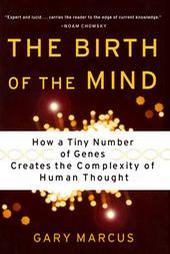
The Birth of the Mind
-
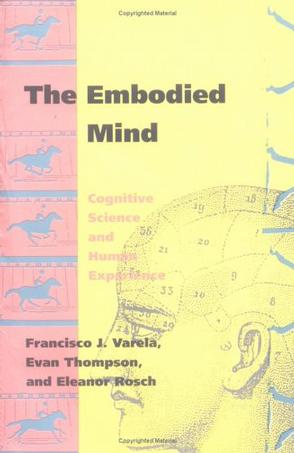
The Embodied Mind
The Embodied Mind provides a unique, sophisticated treatment of the spontaneous and reflective dimension of human experience. The authors - argue that only by having a sense of common ground between mind in Science and mind in experience can our understanding of cognition be more complete. Toward that end, they develop a dialogue between cognitive science and Buddhist meditative psychology and situate it in relation to other traditions such as phenomenology and psychoanalysis.Francisco Varela is Director of Research at the Centre National de Recherche Scientifique and Professor of Cognitive Science and Epistemology, CREA, at the Ecole Polytechnique in Paris. Evan Thompson is Assistant Professor of Philosophy at the University of Toronto. Eleanor Rosch is Professor of Psychology at the University of California, Berkeley. -
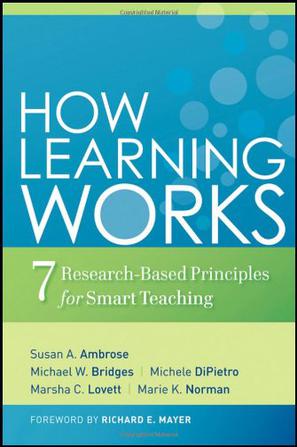
How Learning Works
Praise for How Learning Works "How Learning Works is the perfect title for this excellent book. Drawing upon new research in psychology, education, and cognitive science, the authors have demystified a complex topic into clear explanations of seven powerful learning principles. Full of great ideas and practical suggestions, all based on solid research evidence, this book is essential reading for instructors at all levels who wish to improve their students' learning." -Barbara Gross Davis, assistant vice chancellor for educational development, University of California, Berkeley, and author, Tools for Teaching "This book is a must-read for every instructor, new or experienced. Although I have been teaching for almost thirty years, as I read this book I found myself resonating with many of its ideas, and I discovered new ways of thinking about teaching." -Eugenia T. Paulus, professor of chemistry, North Hennepin Community College, and 2008 U.S. Community Colleges Professor of the Year from The Carnegie Foundation for the Advancement of Teaching and the Council for Advancement and Support of Education "Thank you Carnegie Mellon for making accessible what has previously been inaccessible to those of us who are not learning scientists. Your focus on the essence of learning combined with concrete examples of the daily challenges of teaching and clear tactical strategies for faculty to consider is a welcome work. I will recommend this book to all my colleagues." -Catherine M. Casserly, senior partner, The Carnegie Foundation for the Advancement of Teaching "As you read about each of the seven basic learning principles in this book, you will find advice that is grounded in learning theory, based on research evidence, relevant to college teaching, and easy to understand. The authors have extensive knowledge and experience in applying the science of learning to college teaching, and they graciously share it with you in this organized and readable book." -From the Foreword by Richard E. Mayer, professor of psychology, University of California, Santa Barbara; coauthor, e-Learning and the Science of Instruction; and author, Multimedia Learning -

认知科学哲学导论
本书是第一本对认知科学作全面综合述评的重要教材。其内容涵盖了从神经过程的人工智能模型到最近提出的漫述理论和文化理论。罗姆·哈瑞对该领域作了一个全新的、易于理解的整合。该教材的核心内容是论述“心理学如何能够成为一门科学?”这一问题。其答案建立在对自然科学中的方法和解释所作的清晰说明的基础上,并阐述了自然科学如何被应用于心理学研究。 本书语言流畅,结构合理,对于想对表面上分为意义研究和神经科学研究的这门学科最新状况进行全面把握的学生来说,是一本理想的教材。它分为四篇,每一篇包括三章。每章都为研习者提供了有帮助的学习要点、自测思考题和重要的阅读材料。 《认知科学哲学导论》对无论是过去的还是现在的各种观点进行了出色的审视,真正为新一代心理学学生引入了“心灵的科学”。它既是学习认知科学和认知心理学的各年级学生必不可少的读物,也是社会心理学、人工智能、心灵哲学和语言学等其他领域的学生有用的辅助读物。 -
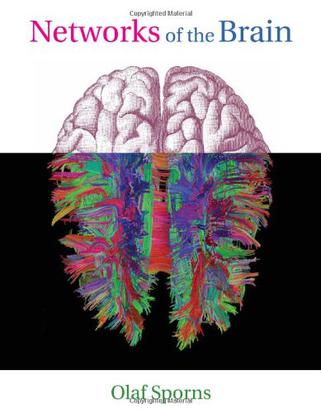
Networks of the Brain
Over the last decade, the study of complex networks has expanded across diverse scientific fields. Increasingly, science is concerned with the structure, behavior, and evolution of complex systems ranging from cells to ecosystems. Modern network approaches are beginning to reveal fundamental principles of brain architecture and function, and in Networks of the Brain, Olaf Sporns describes how the integrative nature of brain function can be illuminated from a complex network perspective. Highlighting the many emerging points of contact between neuroscience and network science, the book serves to introduce network theory to neuroscientists and neuroscience to those working on theoretical network models. Brain networks span the microscale of individual cells and synapses and the macroscale of cognitive systems and embodied cognition. Sporns emphasizes how networks connect levels of organization in the brain and how they link structure to function. In order to keep the book accessible and focused on the relevance to neuroscience of network approaches, he offers an informal and nonmathematical treatment of the subject. After describing the basic concepts of network theory and the fundamentals of brain connectivity, Sporns discusses how network approaches can reveal principles of brain architecture. He describes new links between network anatomy and function and investigates how networks shape complex brain dynamics and enable adaptive neural computation. The book documents the rapid pace of discovery and innovation while tracing the historical roots of the field. The study of brain connectivity has already opened new avenues of study in neuroscience. Networks of the Brain offers a synthesis of the sciences of complex networks and the brain that will be an essential foundation for future research. -
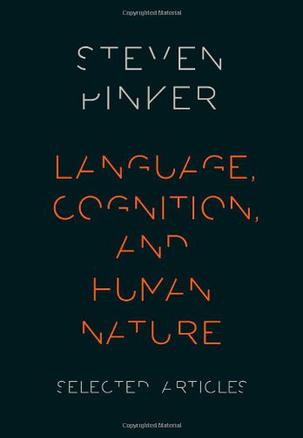
Language, Cognition, and Human Nature
Language, Cognition, and Human Nature collects together for the first time Steven Pinker's most influential scholarly work on language and cognition. Pinker is a highly eminent cognitive scientist, and his research emphasizes the importance of language and its connections to cognition, social relationships, child development, human evolution, and theories of human nature. The thirteen essays in this eclectic collection span Pinker's thirty-year career, ranging over topics such as language acquisitions, visual cognition, the meaning and syntax of verbs, regular and irregular phenomena in language and their implications for the mechanisms of cognition, and the social psychology of direct and indirect speech. Each outlines a major theory - such as evolution, or nature vs. nurture - or takes up an argument with other prominent scholars such as Stephen Jay Gould, Noam Chomsky, or Richard Dawkins. Featuring a new introduction by Pinker that discusses his books and scholarly work, this book represents a major contribution to the field of cognitive science, by one of the field's leading thinkers.